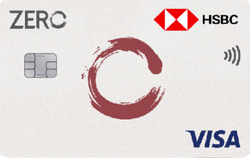Apple’s stance on the exclusivity of its products and services is nothing new. Systems developed for devices are generally only compatible with each other, which is part of the company’s macro policy.
So it’s not the first time that underlying companies that want to make their products available to users of Apple’s products, like the iPhone and MacBook, have had trouble negotiating with the giant.
This time, a group of French content companies sued Apple for the difficulties faced in making their applications accessible to users of the devices.
The litigation
The lawsuit was filed in the Federal Court of Oakland in California, where the company’s headquarters are located. The action was proposed by French companies L’éQUIPE 24/24, Societé du Figaro and Le Geste. All are news and content application developers.
The allegations are that Apple would be preventing free competition by applying very high fees (30% of sales + US$ 99.00 per year) to make applications available for devices with the operating system IOS.
As is known, the IOS operating system is the only one available for iPhone mobile devices. Both are produced and controlled by Apple. This situation means that the company has full control of everything that is made available to consumers and that it can charge whatever price it wants for it.
The suit accuses Apple of violating US antitrust law by requiring only one app store. According to the application developers, the determination would be preventing consumers from choosing freely and even the innovation process itself. The indictment also alleges monopoly abuse through the requirements.
The proposed action has a collective character and Apple has not yet manifested itself.
Litigation history
It is not the first time that Apple has been accused of abuse of monopoly power and has been sued for this conduct.
Last year, the same firm that now defends the French group struck a $100 million deal with Apple, defending the interests of smaller developers. In that case, the allegations attacked the same practice of charging 30% for making apps available on the App Store.
Small developers claim that such a charge would be excessive and would limit the number and type of apps available to consumers. The case ended in a settlement and the amount paid proved to be negligible given the company’s market value, which exceeds US$ 2.3 trillion.
Since then, few changes have been made.
Another highly criticized issue concerns Apple’s internal payment methods (in-Apple), which also keep small developers away with surcharges. Even large companies like Netflix have an internal policy to avoid these media, which are always more costly for companies.
In any case, Apple has positioned itself in relation to small developers by guaranteeing the reduction to 15% of the fee for this type of application. In addition, it promised to create a support front for small developers, which would have an estimated budget of 100 million.
In addition to small developers, Apple faces Epic Games, creator of Fortnite, also in lawsuit discussing free competition. However, in this case the amount could be much higher than the developers’ 100 million. In addition, the decision will provide a guide to the issue of Apple’s ongoing violation of the Antitrust Act.
Despite Apple’s position on seeking to accept the complaints, what is alleged is a structural operationalization of the company to eliminate competition. Furthermore, the popularity of the company’s products demonstrates that it will take effort from all sides, as Apple in fact controls the information and technology available to a large part of the world.
- Bitcoin
- blockchain
- blockchain compliance
- blockchain conference
- coinbase
- coingenius
- Consensus
- crypto conference
- crypto mining
- cryptocurrency
- decentralized
- DeFi
- Digital Assets
- ethereum
- machine learning
- news
- non fungible token
- plato
- plato ai
- Plato Data Intelligence
- Platoblockchain
- PlatoData
- platogaming
- Polygon
- proof of stake
- tech
- Update on Bitcoin
- W3
- zephyrnet









